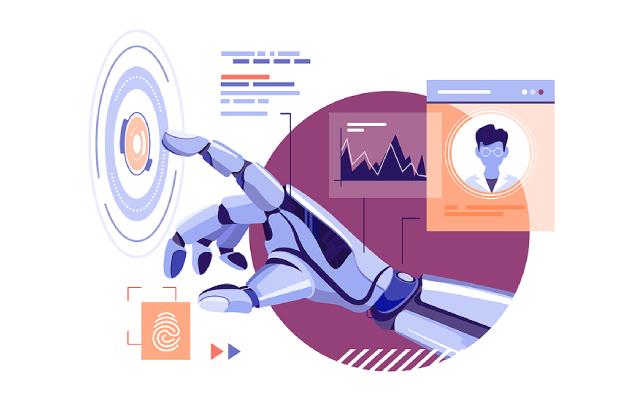The digital age has revolutionised the way we learn and interact with knowledge. With the rise of artificial intelligence (AI) and its application in online learning, this transformation has only accelerated.
AI has the potential to drastically improve the online learning experience, allowing learners to interact with educational content in more dynamic and engaging ways. In this post, we will look at the function of AI in online learning and how it is changing the game.
What is Artificial Intelligence (AI)?
Artificial intelligence, or AI, is the scientific field that aims to create machines that can exhibit intelligent behaviour. AI has many different applications and is used in a wide range of industries — from finance to healthcare, agriculture, and retail. It can be used to create systems that can solve problems autonomously by using sophisticated algorithms based on data and statistical analysis.
A core component of AI is machine learning, which refers to the ability of computers to learn and make decisions without being programmed. This is achieved by feeding computers large amounts of data, which they analyse and use to “learn” patterns and develop results and recommendations.
AI in Online Learning
Artificial intelligence is rapidly transforming the way we learn. From automated assessment and feedback to personalised instruction, AI is being used to unlock the potential of online learning.
In the following, we will examine some of the advantages AI offer for online learning.
1. Personalised Learning
AI algorithms in online learning platforms enable personalised learning and provide a tailored experience to each individual learner. The learners can receive customised learning paths and recommendations based on their performance, preferences, and learning style.
This improves the learning outcomes as it takes into account the individual’s strengths and weaknesses. Along with this, AI can provide a quicker response time for learners’ queries, helping them to stay engaged in the process of learning. As a result, AI leads to better understanding and higher knowledge retention by providing personalised learning.
2. Automated Assessments and Feedback
Automated assessments are revolutionising the way that online learning platforms in Singapore are delivering courses. They are generated by robust computer programs, leveraging AI to create highly accurate and reliable evaluations that can be produced more frequently than traditional human-marked assessments.
Automated assessments are beneficial as they reduce bias, improve accuracy, and save time and resources. Moreover, they can be used to assess various tasks such as essay writing, multiple choice questions and even programming. In this way, automated assessments provide a comprehensive and meaningful assessment of learner progress without compromising the quality of evaluation.
3. Performance Analysis and Predictive Modelling
With the emergence of advanced analytics tools and predictive modelling, performance analysis has become more efficient and precise. AI-driven performance analysis tools can help educators identify any potential issues or red flags in the learner’s performance much earlier on. This allows educators to intervene at an early stage, preventing any further impediments to the learner’s progress.
Furthermore, these tools are also valuable for tracking the learner’s progress over time and can provide helpful insights that can be used to further enhance their educational journey.
4. Enhancing Interactivity in Online Learning
Interactivity is a key factor in improving the learning experience, both in person and online. AI allows for more creative possibilities, allowing users to engage with content in unique and innovative ways.
For instance, AI can be used to develop interactive and engaging graphics, photos, videos, and animations that can help to explain complex ideas more easily. This allows for a greater level of interactivity while still providing the user with comprehensive information and knowledge.
5. Improving Accessibility and Inclusivity
AI can be a powerful tool for making online learning environments more accessible and inclusive. It has the potential to provide users with access to education anytime and anywhere, which can help reduce barriers to learning, such as geographic location and time constraints.
Furthermore, it can help create an online learning environment that is accessible to everyone, no matter their level of physical or cognitive ability. Thus, it provides an equitable platform for all students to participate and learn.
By using AI, educational institutions and organisations can ensure that all members of their community can access the same quality education without any hindrances related to accessibility or inclusivity. This will ultimately help create a more equitable, inclusive, and accessible learning environment for everyone.
Conclusion
AI technologies are rapidly transforming the way we learn and creating unprecedented opportunities for immersive learning experiences. AI-based applications provide personalised educational guidance tailored to individual needs, helping to bridge the digital divide and increase access to quality education.
PandaiSuite offers a comprehensive learning management system in Singapore designed to facilitate learners in their journey of growth and development. With its easy-to-use interface, users can enjoy an interactive and engaging experience while maximising learning opportunities. The platform also provides an array of features, including customisable course material, online assessments, progress tracking, and more. Reach out to us today and discover how PandaiSuite can help you enhance your learning experience.

